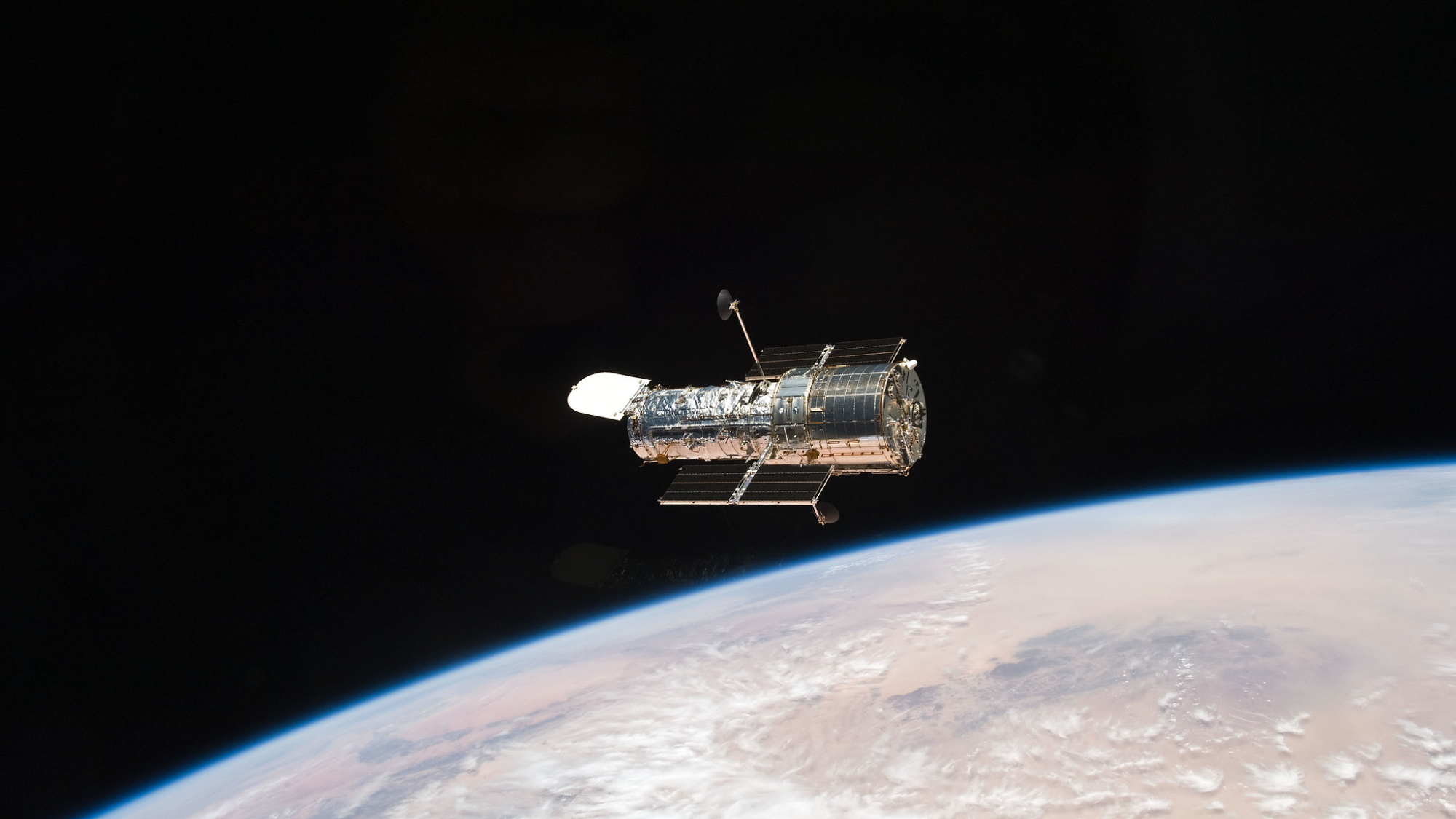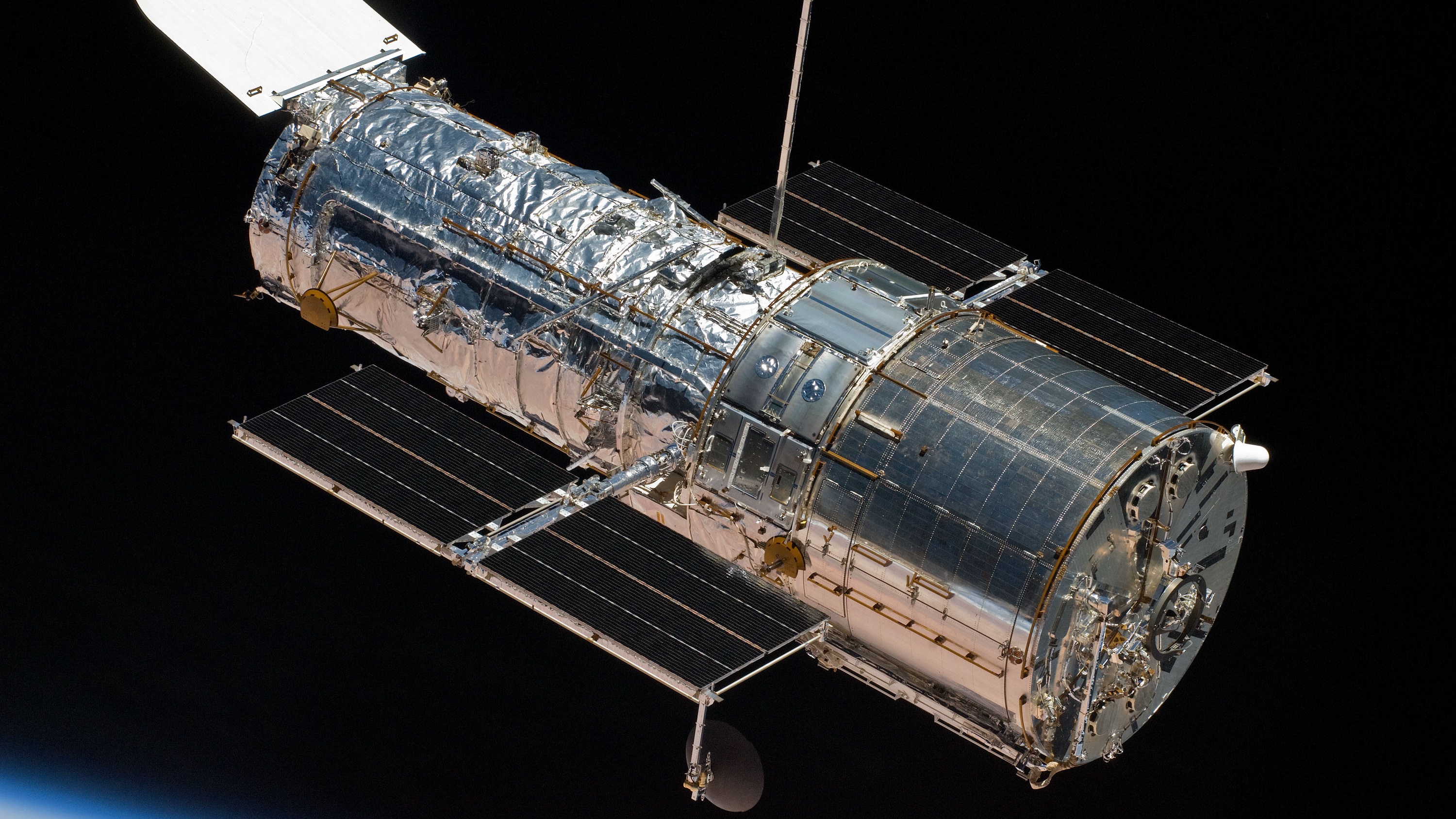Rocketplane Kistler President Resigns
Rocketplane Kistler, on the verge of losing NASA backing forthe rocket it had hoped to use to carry supplies to the international spacestation, accepted the resignation of its president just days after he sent alengthy missive to the U.S. space agency blaming it for the company's financialwoes.
The Oklahoma City-based company confirmed Oct. 4 that RandyBrinkley had stepped down and been replaced by William Byrd, a member ofRocketplane's board of directors.
Byrd, 54, is the director of the Iowa Space GrantConsortium, a position he has held since leaving NASA in 1994 after more than adecade working on the space shuttle and space station programs.
Brinkley, a former president of Boeing Satellite Systems,took over Kistler Aerospace in August 2004 and led the reusable rocket companyout of bankruptcy and through its acquisition by Rocketplane in early 2006 justas proposals for NASA's Commercial Orbital Transportation Services (COTS)demonstration program were coming due. Brinkley did not respond the week ofOct. 1 to multiple requests for comment.
Rocketplane Kistler (RpK) won one of the twofunded COTS agreements NASA awarded in August 2007, entitling the company toreceive up to $207 million in government funding for the development of its K-1reusable rocket provided it met certain technical and financial milestones,including raising $500 million in private financing for the project.
NASA notified RpK in early September that it considered thecompany inbreach of its COTS agreement for failure to meet a May deadline forraising the money and for not completing a promised critical design review ofthe K-1's pressurized cargo module on schedule. "After review andconsideration of RpK's performance to date and its proposed plans forcompleting Milestone 4 [a second and final financing round], we have determinedthat additional efforts are not in the best interest of NASA," ScottHorowitz, NASA associate administrator for exploration systems wrote Sept. 7.
In late September, Brinkley sent NASA a seven-page letterblaming the agency for the company's financing woes, disputing that it was indefault on the promised critical design review and raising the possibility oflegal action should the agency terminate its COTS agreement.
Get the Space.com Newsletter
Breaking space news, the latest updates on rocket launches, skywatching events and more!
NASA spokeswoman Melissa Mathews said Oct. 3 that the agencyhad not yet made a decision to terminate RpK's agreement.
However, other NASA officials not authorized to speak toreporters about the situation, said termination was imminent. NASA's Sept. 7letter to RpK started the clock on the minimum 30-day notice the agency isrequired to give under the COTS agreement before pulling out. These officialssaid planning for a new competition for the remaining $175 million of RpK'sCOTS money was underway.
Mathews told Space News in mid-September that NASAplanned to conduct a new COTS competition if it terminates RpK's award. "Anycompany, including RpK, that meets the eligibility requirements would be ableto compete," she said at the time.
In his letter, a copy of which was obtained by SpaceNews, Brinkley says NASA in recent months caused investors to question thespace agency's commitment to COTS and commercial space, which in turn preventedRpK from meeting two milestones.
Brinkley says two incidents in particular spooked RpK'sinvestors. The first, he said, was NASA's announcement this spring that it hadconcluded a $720 million deal with Russia to provide space station crew andcargo transportation services through 2011.
"That action significantly reduced the potential cargovolume and revenue available to COTS participants in the critical 2010-2011timeframe," Brinkley wrote. "Senior NASA officials were widely quotedin the press at the time suggesting that NASA does not see COTS as thepreferred alternative for resupply of the ISS."
NASA Administrator Mike Griffin tried at the time toreassure COTS contenders that there would still be plenty of space stationre-supply business to go around when the agency ultimately puts the commercialservice contracts out for bid. He repeated that message April 12 2007 during amedia roundtable here at the 23rd National Space Symposium.
"Our studies have shown we can use everything we can getfrom Progress and Soyuz plus everything commercial companies are offering toprovide for the space station and not be oversubscribed," Griffin toldreporters attending the National Space Symposium in Colorado Springs in April.
Griffin also said at the time that COTS Phase 2 – the awarding of actual spacestation servicing contracts – would be an open competition and that interestedcompanies would not necessarily have to demonstrate their proposed systemsbefore submitting bids.
"I doubt that I would impose such a requirement," Griffin said. "It would go in the direction of excluding too many people. It'spossible to conduct a competition and select winners before the ability toprovide the service has been demonstrated. The government does it all the time."
In early August, two months after RpK had missed itsfinancing milestone, NASA asked industry to submit information about itsexisting or planned launch capabilities to help the agency shape procurementstrategies for space station re-supply services and satellite launch.
To RpK, the request for information NASA issued in Augustwas a significant departure from the agency's original COTS announcement, whichthe company says made it sound like a successful demonstration in Phase 1 wouldbe a prerequisite in COTS Phase 2.
"The fact is that the follow-on ISS Servicing RFIsignificantly deviates from the COTS announcement, and this public notificationcaused potential investors to question NASA's commitment to COTS and commercialspace," Brinkley wrote.
Brinkley said RpK's financing plans – including $300 millionin Canadian commitments – begin to unravel at that point and were dealt anotherblow in late July when U.S. credit markets were buffeted by the sub-primemortgage fallout.
On Sept. 6, RpK's lead investors – Canada's McDonald Dettwiler and Associates and the Ontario Teachers Pension Plan (identified byBrinkley only as a "Canadian investment fund" pledging $200 million) – explained to NASA and RpK why they were withdrawing their financialcommitments.
"The primary reason, highlighted by discussions withpotential U.S. investors, was the uncertain revenue stream from ISS servicing,"Brinkley wrote. "In their view, the current conditions, particularly thelack of a servicing commitment from NASA, makes any COTS participant notfinanceable. The lead investor emphasized their strong continuing interest andthat they would reconsider their position if NASA could commit to a definedrevenue stream post COTS demonstration. In the end, the conclusion of the Canadianinvestment fund was that, absent an ISS servicing commitment from NASA, theywould not finance RpK and not any other potential COTS participant."
The following day, Sept. 7, NASA sent RpK notification thatit was in default on its COTS agreements. Termination could happen as soon asthe week of Oct. 8.
Companies that did not make the cut during NASA's COTScompetition last year are now gearing up to submit new proposals.
Some of thosecontenders are unsympathetic to RpK's situation, among them: David Gump,president of Reston, Va.-based Transformational Space Corp. The company's air-launchedpiloted capsule was a finalist for COTS funding last year and is one of severalcompanies keeping NASA apprised of its progress through unfunded COTSagreements awarded earlier this year.
"RpKcame in with a lot of promises and a half baked business plan and the marketplace is weeding them out," Gump said. "It's disingenuous to now saythey were shocked – shocked – they would have to compete for ISS cargobusiness. That was plan[ned] in the original ISS cargo announcement. Everybodywho bid knew it.
- VIDEO: Moon 2.0: Join the Revolution
- GALLERY: 50 Years of Spaceflight: The Road Ahead
- Future of Flight
Join our Space Forums to keep talking space on the latest missions, night sky and more! And if you have a news tip, correction or comment, let us know at: community@space.com.
Brian Berger is the Editor-in-Chief of SpaceNews, a bi-weekly space industry news magazine, and SpaceNews.com. He joined SpaceNews covering NASA in 1998 and was named Senior Staff Writer in 2004 before becoming Deputy Editor in 2008. Brian's reporting on NASA's 2003 Columbia space shuttle accident and received the Communications Award from the National Space Club Huntsville Chapter in 2019. Brian received a bachelor's degree in magazine production and editing from Ohio University's E.W. Scripps School of Journalism.









